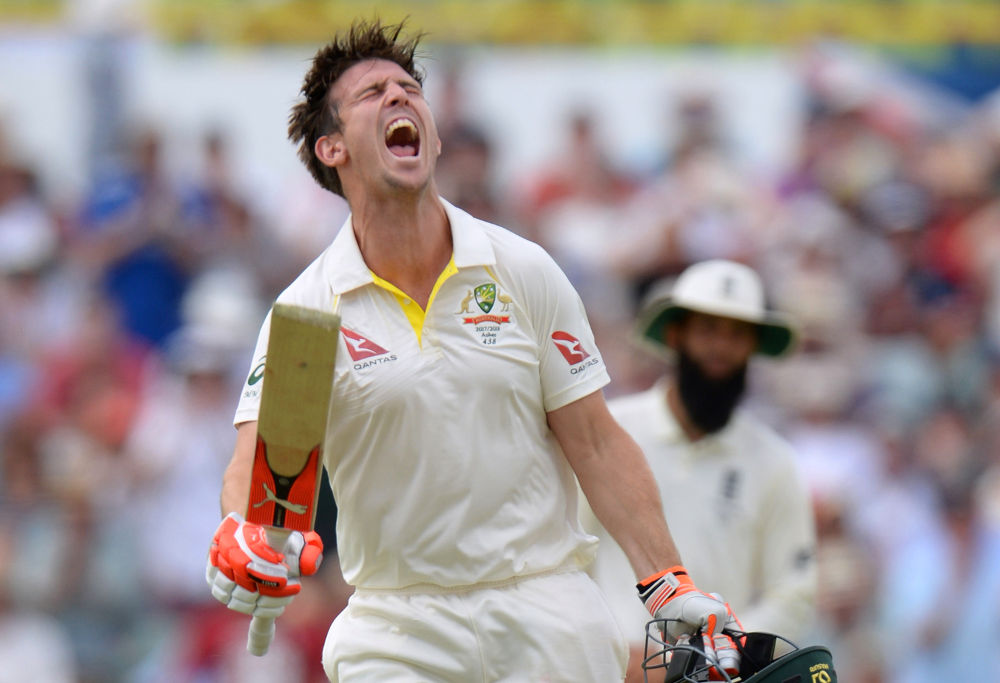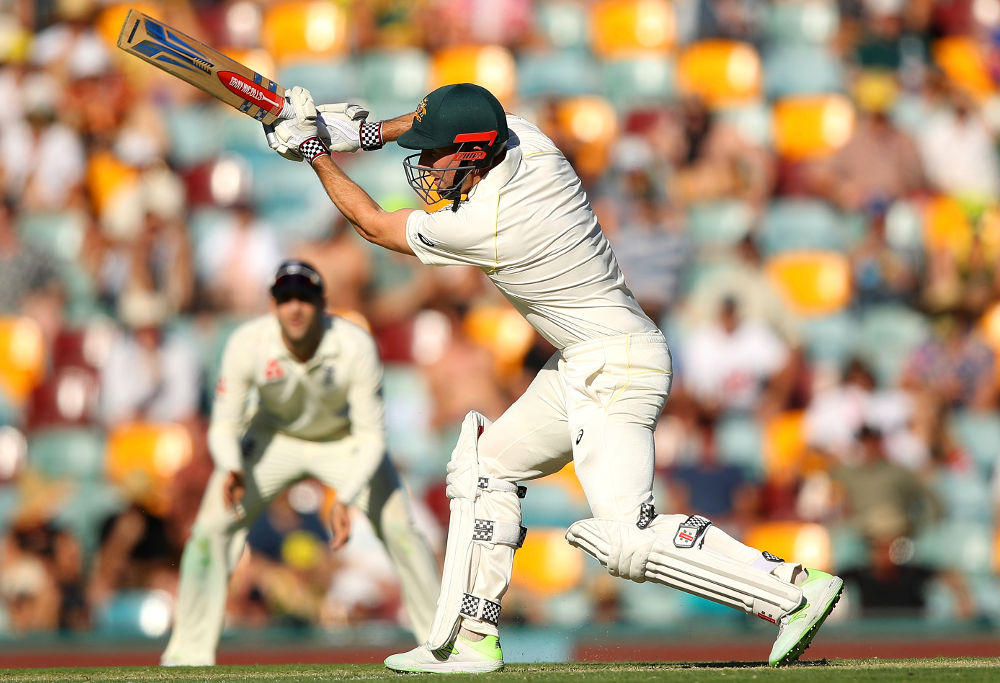Serious questions must be asked about the immediate Test futures of the Marsh brothers, despite Mitch Marsh’s ascension to the role of Australian vice-captain.
As Australia have been dominated in the first Test against Pakistan this week, the Marsh brothers have combined to contribute just 19 runs from their four innings. A deeper look into their Test records reveals some damning stats.
Shaun Marsh has become a liability away from home, averaging just 16 in his past nine Tests outside Australia, while Mitch Marsh no longer deserves his all-rounder status, having averaged 75 with the ball in his past 15 Tests.
Across those same 15 Tests, Mitch Marsh has averaged only 29 with the bat, with that average pumped up by a dominant three-Test run at home against a dispirited England team.
The younger Marsh was incredible in the Ashes, but that series looks like an anomaly when compared with the remainder of his Test career.
Mitch Marsh’s Test batting record:
In the 2017 Ashes – 320 runs at 106
In his 26 other Tests – 862 runs at 21
I must admit that, watching Mitch Marsh in the Ashes, I thought he had finally turned a corner with his batting. His defence, both front and back foot appeared much tighter, and his shot selection seemed to have improved markedly.

Mitch Marsh in happier times. (Photo by Philip Brown/Getty Images)
But in ten Test innings since that series he has averaged just 19. Throughout his four-year Test career Mitch Marsh’s batting has been given leeway by the selectors due to his role as an all-rounder, the idea being that he brings balance to the side by being a good fifth bowler.
That was true, to an extent, earlier in his career when he was an effective seamer. In his first dozen Tests, Mitch Marsh took 21 wickets at an average of 31 and his bowling had a significant impact on five matches in that time.
But the 26-year-old has been of minimal value with the ball for a long time now, taking just nine wickets at an average of 75 in his last 15 Tests.
Not only has he badly lacked penetration – his strike rate is 121 in that period – but he hasn’t even built pressure for his captain due to his very high economy rate of 3.72 runs per over.
In short, he has offered neither a wicket taking option nor the ability to hold up an end. This helps explain why he is used sparingly by new Test captain Tim Paine, who waited 85 overs in Pakistan’s first innings at Dubai before eventually tossing the ball to Marsh.
With Marsh’s bowling no longer providing value then his position must be earned by making runs and, outside of that golden Ashes, he has never achieved that. Which is why his spot should be under threat from Glenn Maxwell, who has a career first-class batting average of 41 and who averaged 50 in the Shield last summer.
Compare the international bowling records, across all three formats, of each player:
Mitch Marsh – 81 wickets at 39
Glenn Maxwell – 77 wickets at 36
Now tell me why Maxwell could not take on Marsh’s role of sending down, on average, just 13 overs per Test. Australia have so much firepower among their leading specialist bowlers like Mitchell Starc, Pat Cummins, Josh Hazlewood and Nathan Lyon that the fifth bowler is typically relegated to a minor role.
Surely, then, this limited role could be entrusted to someone like Maxwell, who has done a reasonable job with the ball for Australia in all three formats.
It is time Mitch Marsh is judged solely on his batting returns, rather than the waters being muddied by his supposed value as an all-rounder. His brother, meanwhile, is fortunate that Steve Smith, David Warner and Cameron Bancroft are all currently banned.
Shaun Marsh, too, had a sensational Ashes series, but his form away from home is dire.
Australia have no problems finding batsmen who can make runs at home on hard flat decks, what they need is to unearth batsmen capable of flourishing on the road.

Shaun Marsh of Australia. (Photo by Cameron Spencer/Getty Images)
Matt Renshaw showed some great signs in the Tests in India last year, averaging more than 40 against spin, despite the home side boasting champion tweakers Ravi Ashwin and Ravi Jadeja.
Joe Burns, meanwhile, might have struggled in his two Tests in Sri Lanka but only months before that he was outstanding in the series in New Zealand, averaging 79 and earning a Man of the Match award.
Renshaw and Burns both have indicated they can adapt to foreign conditions and, just like Maxwell, have also been consistently good in the Sheffield Shield.
Why, then, should Australia persist with Shaun Marsh, who has floundered in his past three overseas tours and who at 35 is some six years older than Maxwell and Burns, and 13 years older than Renshaw?
If Australia want to win the Ashes in England next year they cannot keep fielding the same cricketers who continually fail away from home.
The Marsh brothers should not be automatic Test selections this summer. Renshaw, Maxwell and Burns must be given opportunities ahead of the Ashes.






























































































